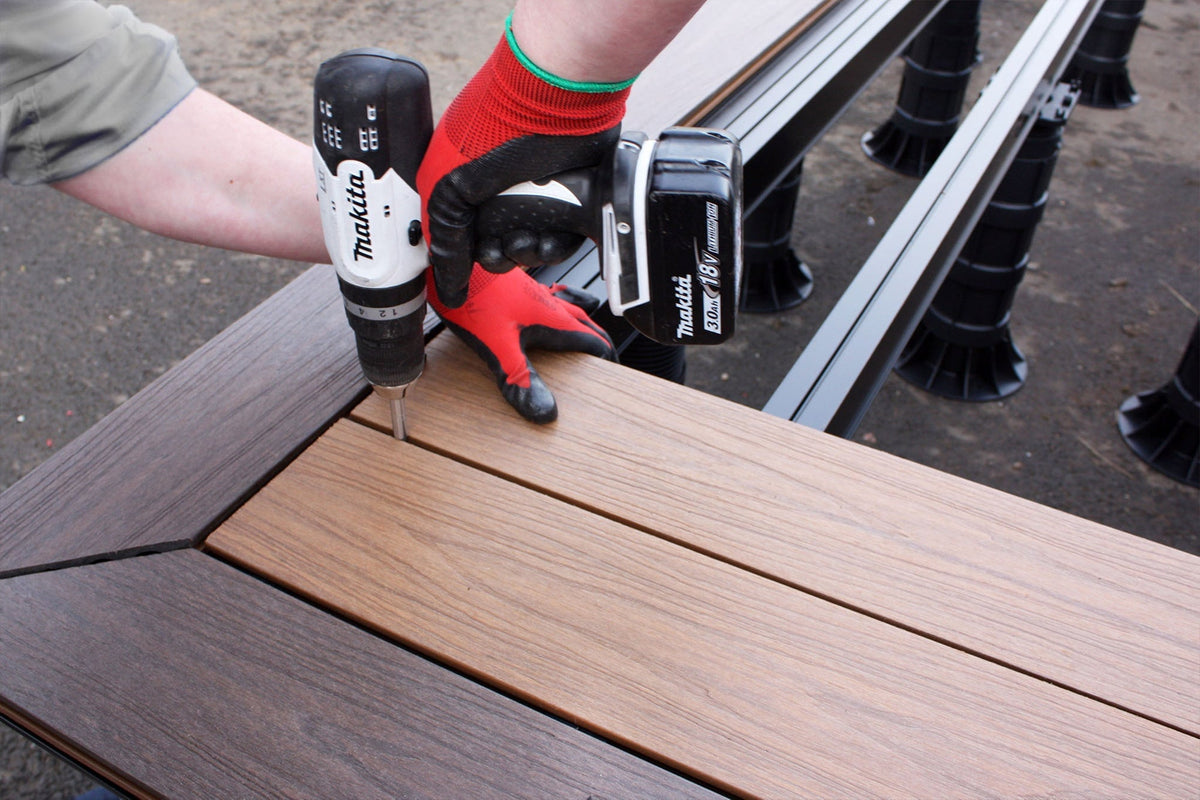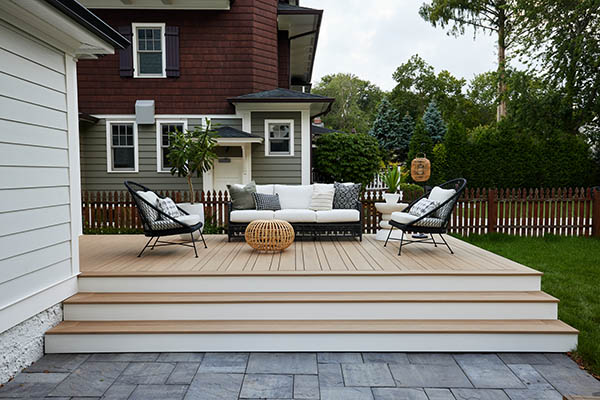Exactly how to Pick the Right Materials for Your Deck Setup Job
Picking the appropriate materials for your deck setup project can seem challenging. There are countless variables to consider, from resilience and maintenance to looks and environmental impact. The selection between conventional timber and composite materials, each with its own set of advantages and drawbacks, can be especially challenging. The key is to stabilize your budget plan, design choices, and way of living requires to produce a deck that will certainly enhance your outside area for years to find.
Comprehending the Different Sorts Of Deck Products
When embarking on a deck installment project, the selection of products becomes an essential choice. Composite materials, on the other hand, are a mix of timber and plastic, supplying longevity and resistance to weather elements. By understanding these differences, house owners can make an extra enlightened decision on the most suitable deck product for their certain requirements.
Reviewing the Durability and Maintenance Requirements of Deck Materials
Evaluating the sturdiness and maintenance needs of deck products is a critical step in deck installation. Durability entails the product's capacity to withstand rough weather condition conditions, wear and tear, and its long life.
Recognizing maintenance requirements is just as essential. Some materials call for routine sealing or tarnishing to preserve their look and stand up to dampness damage, while others, like composite outdoor decking, demand less maintenance. By examining these elements, one can choose one of the most appropriate decking product, guaranteeing an equilibrium between durability, maintenance demands, and visual appeal.
Expense Analysis: Comparing Wood and Compound Decking
Although expense might originally appear like a second concern, it is a substantial variable when comparing wood and composite decking. On the various other hand, composite decking, while pricier initially, needs much less upkeep, possibly minimizing lasting costs. Potential deck owners should consider their budget and readiness to maintain their decks when deciding between wood and composite outdoor decking.
Aesthetics and Style Flexibility of Decking Materials
While price is an important factor to consider, the visual allure and design versatility of outdoor decking materials also play a significant function in the decision-making procedure. Different products provide differing degrees of aesthetic charm. As an example, natural timber decking provides a classic, classic look, while composite products offer a wide variety of shades and structures to match diverse preferences and designs. In a similar way, style versatility describes the capability to form and control the outdoor decking material to satisfy specific design demands. Timber, as an example, uses high layout flexibility as a result of its convenience of reducing and shaping. Compound materials, while less versatile in style, are still adaptable enough for most deck styles. These aspects, therefore, are essential components in the choice of outdoor decking material.
Environmental Effect of Decking Products
When choosing decking materials, one have to think about not only appearances and longevity, but also the environmental impact. It is essential to examine the sustainability of products and check out recycled decking alternatives. In addition, comprehending the possible effect on regional environments will certainly make sure a more environmentally liable selection.
Evaluating Product Sustainability
In the realm of deck building and construction, examining product sustainability is a crucial step. This entails evaluating the ecological impact of each potential product, thinking about elements such as the power needed for its production, its carbon footprint, and its end-of-life disposal or recycling options. Wood is a sustainable resource, however unsustainable logging practices can lead to deforestation. Composite decking products usually incorporate wood and plastic, decreasing the need for new timber yet boosting reliance on fossil gas. Light weight aluminum and various other metals may be a lot more resilient and recyclable, however their extraction and processing can be energy-intensive. Therefore, the choice of outdoor decking materials visit their website should stabilize functionality, aesthetics, expense, and sustainability to guarantee an accountable and durable setup.
Recycled Decking Alternatives

Composite decking is especially prominent because of its sturdiness and simplicity of maintenance. It's immune to rot, bugs, and fading, making it a lasting alternative. Recycled plastic decking, on the various other hand, is highly resistant and needs minimal maintenance. While these materials may carry a higher initial cost, their durability and minimized ecological effect make them a sensible investment for the eco-conscious home owner.

Influence On Local Ecological Communities
While the benefits of utilizing recycled products for decking can not be overstated, it's equally crucial to take into consideration the more comprehensive ecological implications of these options. Correct disposal of old decking is vital to decreasing garbage dump waste. Essentially, resource an eco-conscious deck project needs careful product option, sustainable sourcing, and liable disposal.
Making Your Last Decision: Tips for Picking the most effective Deck Materials
As the short article transitions into the subtopic of "Making Your Final Choice: Tips for Picking the very best Deck Products", it is important to comprehend the variety of deck products offered. Striking a balance in between toughness and appearance is crucial in this choice procedure. The complying with discussion will certainly assist readers in making an enlightened choice based on these key factors to consider.
Understanding Various Deck Materials
The job of picking the appropriate products for your deck installment can appear discouraging due to the substantial selection of alternatives readily available. Plastic or PVC decks are also a lot more long lasting and need much less maintenance than composite materials, but they can look less all-natural. Light weight aluminum decks are solid, lightweight, and resistant to rot, but they are additionally the most pricey alternative.
Durability vs. Looks Equilibrium
Balancing sturdiness with aesthetics can be an obstacle when choosing deck materials. The choice usually comes down to personal preferences and the deck's planned usage. High-traffic areas might require resilient materials like composite outdoor decking, which stands up to deterioration but might lack the natural elegance of wood. On the other hand, timber provides a timeless allure and warmth that artificial materials struggle to duplicate. It needs extra maintenance and may not last as long. For that reason, property owners need to strike a balance, considering both the deck's useful demands and their visual choices. By doing so, they can guarantee their deck remains a useful and eye-catching outside room for many years to come.
Final thought
To conclude, selecting the ideal materials for your deck setup project requires careful factor to consider of factors such as durability, upkeep, price, aesthetics, and ecological influence. Whether you decide for typical timber or composite materials, your choice should straighten with your spending plan, style preferences, and lifestyle. Ultimately, top article the most effective outdoor decking product is one that improves your outdoor space and gives pleasure for many years to find.